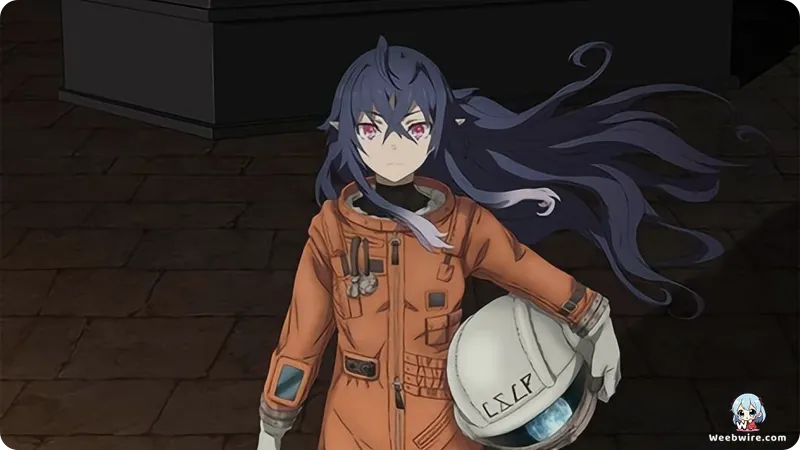Star-Crossed & Stellar: The Enduring Legacy of 'Irina: The Vampire Cosmonaut's' Unique Narrative and Production Secrets

Prepare to journey beyond the stratosphere as we delve into the mesmerizing universe of Irina: The Vampire Cosmonaut, known in Japan as Tsuki to Laika to Nosferatu. This critically acclaimed anime has captivated a global audience with its masterful fusion of historical fiction, cutting-edge science fiction, and poignant supernatural drama. While many viewers were initially drawn to the tender romance between human cosmonaut candidate Lev Leps and his extraordinary vampire test subject, Irina Luminesk, the series offers a constellation of deeper insights and behind-the-scenes revelations that elevate it far beyond a conventional love story. Join us as we explore the compelling facts that solidify this anime's status as a true standout.
The Narrative Core: A Reimagined Space Race
At its narrative core, Irina: The Vampire Cosmonaut boldly reimagines the intense Space Race era, drawing striking parallels to the Soviet Union's ethically challenging early experiments with animal test subjects. The most profound inspiration comes from the tragic tale of Laika, the Soviet dog. Author Keisuke Makino powerfully casts Irina, a young vampire girl, into this harrowing role of human experimentation, a precursor to manned spaceflight. This audacious choice—replacing an animal with a sentient, supernaturally endowed being—immediately amplifies the stakes and infuses the series with a profound sense of historical gravity and urgent ethical inquiry. Coupled with a nuanced world-building that portrays vampires as a distinct, physiologically unique race facing societal struggles and discrimination, the anime deftly mirrors real-world prejudices, making Irina’s quest for acceptance resonate with powerful authenticity.
The Heart of the Story: Irina and Lev's Evolving Bond
The emotional heart of the narrative lies in the evolving relationship between Irina and Lev. What begins as a professional assignment gradually blossoms into a bond of profound mutual respect and affection. This meticulous, organic development, forged through shared experiences and understated gestures—like Lev’s quiet efforts to introduce normalcy into Irina’s isolated existence or patiently teaching her about the constellations—provides a refreshing counterpoint to conventional anime love stories, making their eventual, powerful connection immensely rewarding.

Behind the Scenes: Arvo Animation's Artistic Vision
Behind the scenes, Arvo Animation played a pivotal role, demonstrating an exceptional understanding of the source material's tone. The studio strategically employed a subdued color palette in early episodes to evoke somber isolation, then subtly shifted to brighter hues and expansive, hopeful shots as the relationship and dreams of space evolved, visually symbolizing burgeoning freedom and possibility. This sophisticated visual storytelling, alongside a meticulous recreation of 1960s Space Race technology and Soviet-era aesthetics, grounds the fantastical premise in believable reality, enriching the overall viewing experience.
Fan Acclaim and Lasting Impact
Fan reception consistently praises Irina: The Vampire Cosmonaut for its unique genre synthesis. While rooted in sci-fi and supernatural elements, it is the potent dramatic and romantic undercurrents that truly resonated, exploring universal themes of prejudice, human ambition, and the relentless pursuit of dreams. The series’ bittersweet yet ultimately hopeful conclusion further cements its place as a masterful illustration of how to intricately weave complex themes and unique character dynamics into a profoundly compelling narrative, offering far more than initially meets the eye.
Credits
Irina: The Vampire Cosmonaut
Author
Keisuke Makino
Cover Art
Karei
Studio
Arvo Animation
Publisher
Shogakukan (Gagaga Bunko)
Producers





